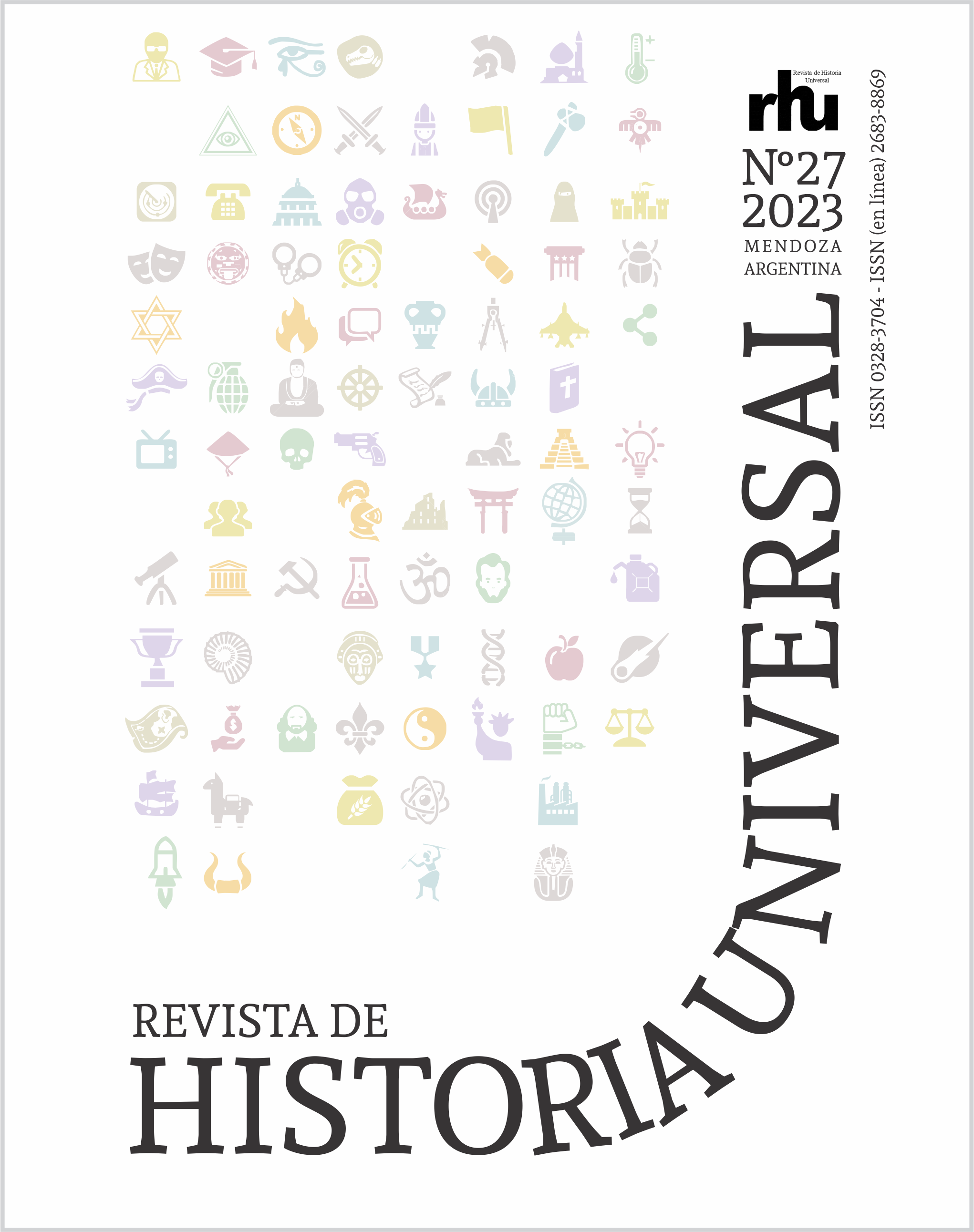Batllismo, anarchism and socialism in Uruguay. The case of Leoncio Lasso de la Vega (1910-1913)
Keywords:
batllismo, anarchism, socialism, UruguayAbstract
This article focuses on the trajectory of Leoncio Lasso de la Vega; intellectual born in Spain who migrated to the Río de la Plata during the second half of the 19th century. Its course was observed according to three fundamental aspects; the contact maintained with the Uruguayan president José Batlle y Ordóñez; its proximity to the anarchism of the early twentieth century; and his disputes with the Socialist Party of the same time. These points were analyzed in the periodical press of the time, with a focus on the El Día and Salpicón organs. Through them, it was shown that Lasso de la Vega manifested a particular relationship between batllismo, anarchism and socialism of the Novecientos; sectors that presented clear points of contact, but also deep confrontations. In particular, it was observed that that figure maintained a clear admiration for Batlle, although he did not join his party, but launched his own candidacy for deputy. Likewise, the discussions that Lasso de la Vega had with socialism, which he used to criticize, but whose members he sought to incorporate as adherents of his independent candidacy, were analyze too.
References
Agorio, A. (1957). Lasso de la Vega y la ronda del diablo. Libreros editores.
Álvarez Junco, J. (1986). El anarquismo en la España contemporánea. Anales de Historia Contemporánea, 5, 189-200.
Antuña, J. L. (1913, 17 de noviembre) Candidatura Lasso de la Vega. Una carta de J. L. Antuña. El Día, 6.
Barrán, J. P. y Nahum, B. (1982). Batlle, los estancieros y el imperio británico. Tomo 3. El nacimiento del batllismo. Ediciones de la Banda Oriental.
Caetano, G. (2011). La República Batllista. Ediciones de la Banda Oriental.
El Comité (1913, 10 de noviembre). Candidatura Lasso de la Vega. Del Comité de la Aguada. El Día, 7.
Frugoni, E. et. al. (1913, 20 de noviembre). Candidatura Lasso de la Vega. Denuncia de cincuenta y cuatro candidatos. El Día, 8.
Lasso de la Vega, L. (1910, 9 de noviembre). Batlle y la política. Salpicón, 2-3.
Lasso de la Vega, L. (1911, 28 de enero). Los partidos políticos. El Día, 3.
Lasso de la Vega, L. (1911, 19 de febrero). Batlle y Ordóñez. Salpicón, 2.
Lasso de la Vega, L. (1911, 4 de marzo). La historia futura. Como juzgará a Batlle y Ordóñez. La Semana.
Lasso de la Vega, L. (1913, 26 de julio). La Masonería y la reforma. Réplicas, noticias y comentarios. El Día, 7.
Lasso de la Vega, L. (1913, 10 de setiembre). Mi candidatura. El Día, 6.
Lasso de la Vega, L. (1913, 4 de octubre). Con “El Socialista”. El Día, 5.
Lasso de la Vega, L. (1913, 22 de noviembre). Candidatura Lasso de la Vega. Con motivo de una protesta. El Día, 6.
Mibelli, C. (1913, 8 de octubre). Aclarando. Con Lasso de la Vega. El Día, 8.
Peterson, L. E. (2014). In the shadow of Batlle: Workers, State Oficcials and the creation of de welfare state in Uruguay, 1900-1916) [Tesis de Doctorado, Universidad de Pittsburgh]. Repositorio institucional de la Universidad de Pittsburgh. http://d-scholarship.pitt.edu/21263/2/In_the_Shadow_of_Batlle. pdf
S/d (1913, 23 de julio). La Masonería y la Reforma. Carta abierta dirigida a Lasso de la Vega. El Día, 7.
S/d (1913, 15 de octubre). La candidatura Lasso de la Vega. Un comité de propaganda. El Día, 5.
S/d (1913, 31 de octubre) Candidatura Lasso de la Vega. El Día, 7.
S/d (1913, 15 de noviembre) Candidatura Lasso de la Vega. Las proclamaciones. El Día, 6.
S/d (1913, 28 de noviembre) Candidatura Lasso de la Vega. La conferencia de anoche. El Día, 8.
Tarcus, H. (2018). Aportes para una historia conceptual del socialismo en el espacio rioplatense. (1837-1899). Revista Conceptos Históricos 4(5), 122-178.
Vázquez Ledesma (hijo), F. (1911, 6 de febrero). Batlle. El Día, 3.
Vidal, D. (2012). Ensayo y aborto de la primera revolución obrera en el Uruguay. En: Fernández, G., Vidal, D., Orígenes del Movimiento Obrero y la 1 Huelga General en Uruguay (pp. 61-128). Editorial Aportes.
Zubillaga, C. (2008). Perfiles en sombra: aportes a un diccionario biográfico de los orígenes del movimiento sindical en Uruguay (1870-1910). FHCE.
Downloads
Published
How to Cite
Issue
Section
License

This work is licensed under a Creative Commons Attribution-NonCommercial-ShareAlike 4.0 International License.







